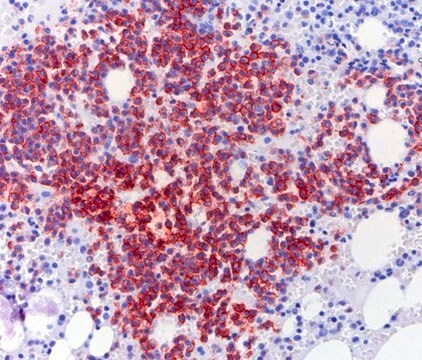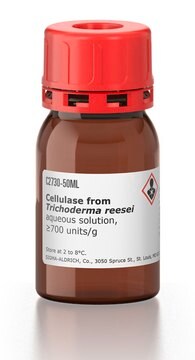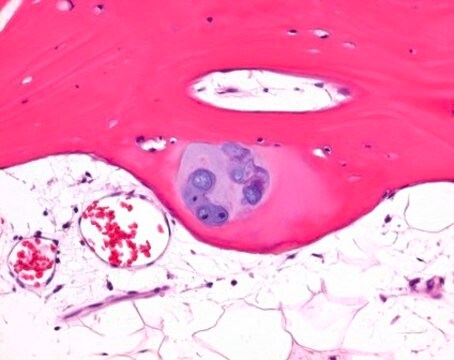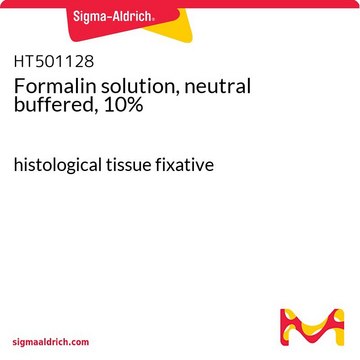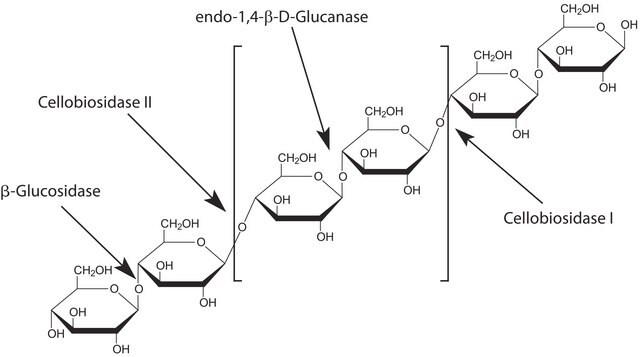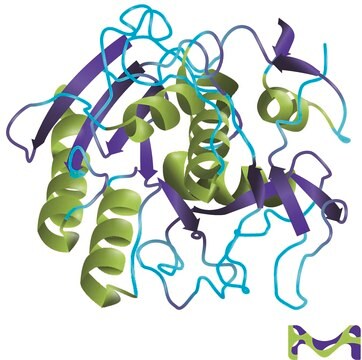D0818
Decalcifying Solution-Lite
aqueous solution, bp 208 °F
Synonym(s):
universal decalcifying agent
Sign Into View Organizational & Contract Pricing
All Photos(1)
About This Item
UNSPSC Code:
12171500
NACRES:
NA.47
Recommended Products
form
aqueous solution
shelf life
5 yr
color
light yellow
bp
208 °F
solubility
water: soluble
application(s)
hematology
histology
storage temp.
room temp
General description
Decalcifying Solution-Lite is designed to be a universal and effective decalcifying agent.
Application
Decalcifying Solution-Lite is intended to be used for the decalcification of routine, immunohistochemical, and bone marrow core specimens.
It works equally well with all types of samples, including calvarial bone samples in an easy-to-handle time frame.
It works equally well with all types of samples, including calvarial bone samples in an easy-to-handle time frame.
signalword
Warning
hcodes
pcodes
Hazard Classifications
Met. Corr. 1
Storage Class
8B - Non-combustible corrosive hazardous materials
wgk_germany
WGK 3
flash_point_f
Not applicable
flash_point_c
Not applicable
Choose from one of the most recent versions:
Already Own This Product?
Find documentation for the products that you have recently purchased in the Document Library.
Customers Also Viewed
L F Machado-Silveiro et al.
International endodontic journal, 37(6), 365-369 (2004-06-10)
To measure the demineralization capability of 1 and 10% citric acid, 10% sodium citrate and 17% EDTA during immersions of 5, 10 and 15 min on root canal dentine. Crowns were sectioned from eight maxillary canines. The cementum was removed
Roger W Byard et al.
Journal of forensic sciences, 55(5), 1356-1358 (2010-05-22)
To determine whether routine decalcification may reduce the amount of stainable iron that is visible on tissue sections, samples of liver and lung tissue with excessive iron stores were placed in three standard decalcifying solutions (i) formic acid [33%], formaldehyde
P J Emans et al.
Biotechnic & histochemistry : official publication of the Biological Stain Commission, 80(3-4), 111-115 (2005-11-22)
Apoptosis is characterized by DNA strand breaks with a 3'-OH terminus, which are analyzed by terminal deoxy(d)-UTP nick end labeling (TUNEL). Proteinase K digestion is thought to be an essential step in the TUNEL procedure. The effects of decalcifying reagents
Farhana Begum et al.
Journal of neuroscience methods, 187(1), 59-66 (2010-01-02)
Histological analysis of bone encased tissue is severely hampered by technical difficulties associated with sectioning calcified tissue. Cryosectioning of bone is possible but requires significant technical adaptation and expensive materials and is often time-consuming. Some decalcifying reagents in common use
A Merchán-Pérez et al.
Histochemistry and cell biology, 112(2), 125-130 (1999-08-25)
An ascorbic acid decalcifying solution was applied to immuno- and affinohistochemical studies on the inner ear. Rat inner ears fixed in 4% paraformaldehyde in PBS or in 2% acetic acid in ethanol solutions were adequately decalcified in an ascorbic acid
Our team of scientists has experience in all areas of research including Life Science, Material Science, Chemical Synthesis, Chromatography, Analytical and many others.
Contact Technical Service